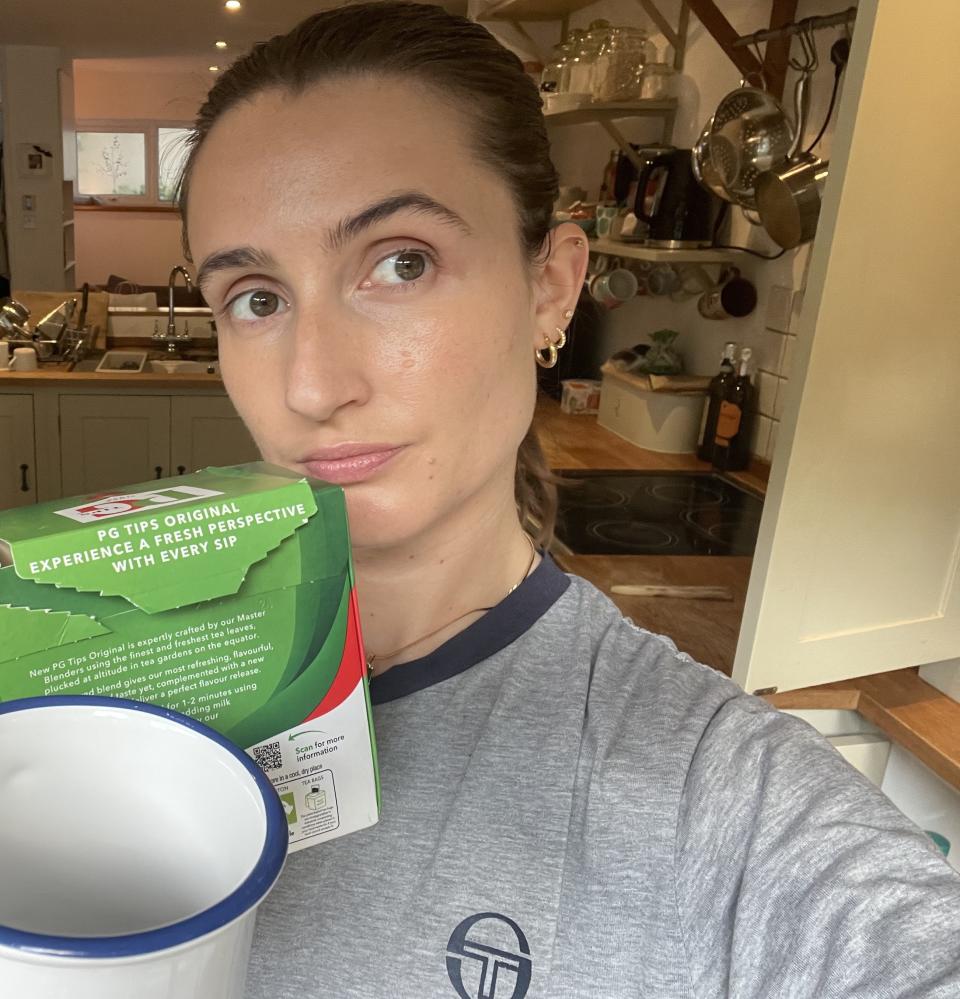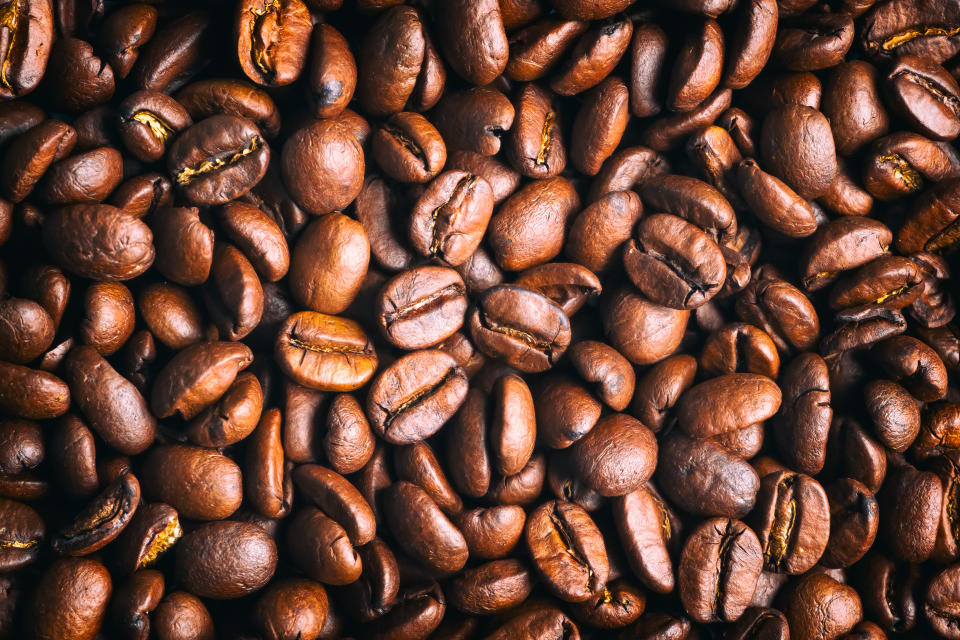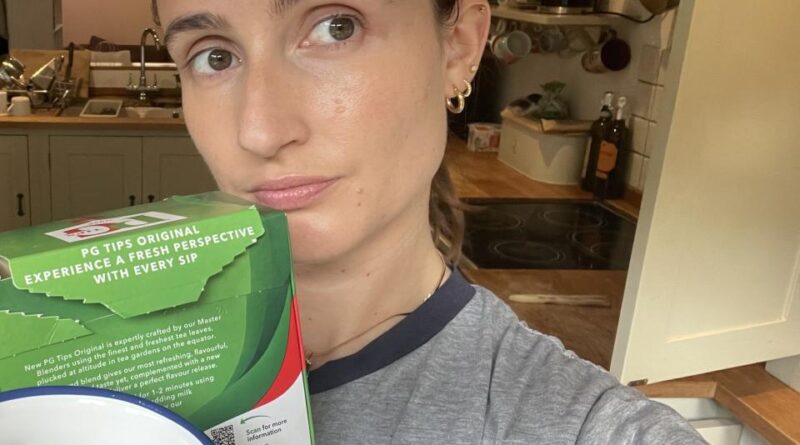I cut out caffeine for a month after a test that showed it could increase my anxiety. This is what happened.
I’ve always wanted to get tested for food intolerances and sensitivities – apparently not much fun desire to have, but one I was happy to finally tick off my list.
As someone who suffers from inflammation and stomach pain, I expected to have a gluten problem, but what came back with a lot of vigilance was ‘caffeine and anxiety levels’. Apparently my genetic condition is associated with an increased risk of high levels of anxiety after caffeine consumption.
Yes, this is why I tried to cut down on my summer lattes, because every time I had one (even though I enjoyed it), I felt like I was about to panic attack…
I often try drinking tea for this reason, but what I didn’t realize before is how much caffeine is in tea.
And I am it’s big a person who drinks tea, drinks many cups a day.
So, with my results suggesting that I reduce my caffeine intake to avoid anxiety symptoms or irritability, that’s exactly what I did for about a month.
Here’s how I went about it, how it helped, and what the testing process was like (including what my other results had to say).
Intolerances and Sensitivities DNA Testing in the blink of an eye
🧘Health screening: Intolerances & Sensitivities DNA Testing, from MyHealthChecked.
⏰ Duration of treatment: 10 minutes to take the test, and one month of no caffeine.
💸Price: £54.00
✅Experienced: From the test – easy to do, clear results, expert nutrition recommendations based on the results. From cutting caffeine – calmer, more balanced, better sleep.
❌Problems caused by: The results take time, (they are not meant to be) and are not the same as a proper test or a proper test.
📝 Details: 4/5
What is the DNA test for intolerance and sensitivity?
MyHealthChecked tests if you have a genetic risk of food intolerances or allergies.
It was sent to my home with clear instructions, and I quickly rinsed it off before sending it to the lab in the package provided.
It’s almost like the COVID tests, but without the correction…
Along with the results – which promise to be ready within 10 days of operation – it shares nutritional recommendations ‘compiled from a team of health professionals’.
My results arrived on the website linked to my account eight days later.
She told me that I have moderate sensitivity to sodium, which can raise my blood pressure, and suggested that I cut back on foods high in sodium like processed meats (I already and veggie, so this didn’t bother me) and table salt. Apparently, seasoning my food with a sodium substitute, such as salt with potassium chloride, would be a better option instead.
It also says I have a moderate sensitivity to caffeine (as opposed to the anxiety-related result). If I eat too much, it can increase my risk of heart disease and high blood pressure. Fortunately I no longer drink more than four cups of coffee a day (which is not recommended for people with my genetic makeup, as it is associated with an increased risk of myocardial infarction and high blood pressure ).
On the good news, my alcohol sensitivity was low, however I wouldn’t consider it an excuse to binge drink now.
My lactose sensitivity was also low, and surprisingly so was my risk of gluten intolerance.
Then there was the high risk of caffeine and anxiety levels.
My body reacts to the stimulating effects of caffeinated drinks and food by blocking the adenosine A2A receptor, causing anxiety.
It recommended that I drink no more than one caffeinated beverage a day, including coffee, tea (black or green), or energy drinks.
Apart from the odd drink I had forgotten about, I decided to stop drinking caffeinated drinks altogether. Here is my journey…
My thoughts


As soon as I woke up, I couldn’t get the kettle on anymore, waiting for it to boil before pouring myself a cup. No more lattes in the sun. Instead, I preferred to use decaf when I wanted a hot drink, which was difficult to begin with.
As someone who has dealt with anxiety for most of my life, I was interested to see if caffeine was a factor, and if cutting it out would make any difference.
In the first week, I especially noticed my desire for a caffeine fix, especially in the morning.
I used to use black tea to help wake me up (I know coffee lovers won’t get that, but it makes sense now why I was sensitive to it) and it gave me the warning I like. But maybe my regular and repeated use throughout the day was causing me general wear and tear (due to my genetics).
I definitely felt more tired than before without the cane, but as time went on, as something felt like it was missing, I found myself calmer and more stable by the end of the day. the second week.
And now after a month (and more used to changing the schedule), it really feels like my anxiety levels have gone down.
It’s not completely gone, but I feel stronger every day.
And although it’s hard to prove, I also think it helped me sleep (as a bad sleeper).
I still need to be better when I get into bed earlierwhen I finally drift off, I feel like I’m falling asleep.
I may still have had these benefits from one caffeinated drink a day, but I was eager to fully explore it (except for the two cokes that slipped my mind!). Although the desire is still a little…
Benefits:
-
The test is easy to do
-
Clear results
-
Expert nutrition advice
-
Informed by the results and advice, I was able to reduce my caffeine intake which helped me feel calmer, more balanced, more balanced and improved the quality of my sleep.
Having problems:
-
Wait for the results not immediately
-
It is not the same as a proper diagnosis, consultation or assessment with a health care professional
Would I do it again?


Actually, I haven’t started drinking caffeinated drinks again, and I’m not sure if I will. I would rather experiment with incorporating morning tea into my waking routine, which I miss. And I can’t stand up for myself witness cutting out caffeine led to the benefits found, it seems possible that there is a connection. And why don’t I want to feel carefree?
I think that if you can, it seems wise to check your health and change your lifestyle accordingly, if you think that food intolerance or sensitivity may be the reason.
However, for better insight into my health and nutrition, I will probably need to consult a health professional properly. So while there’s nothing I can fault about this experience, that’s what’s missing.
This review is based on personal experience and is not a substitute for medical or health advice.
#cut #caffeine #month #test #showed #increase #anxiety #happened
